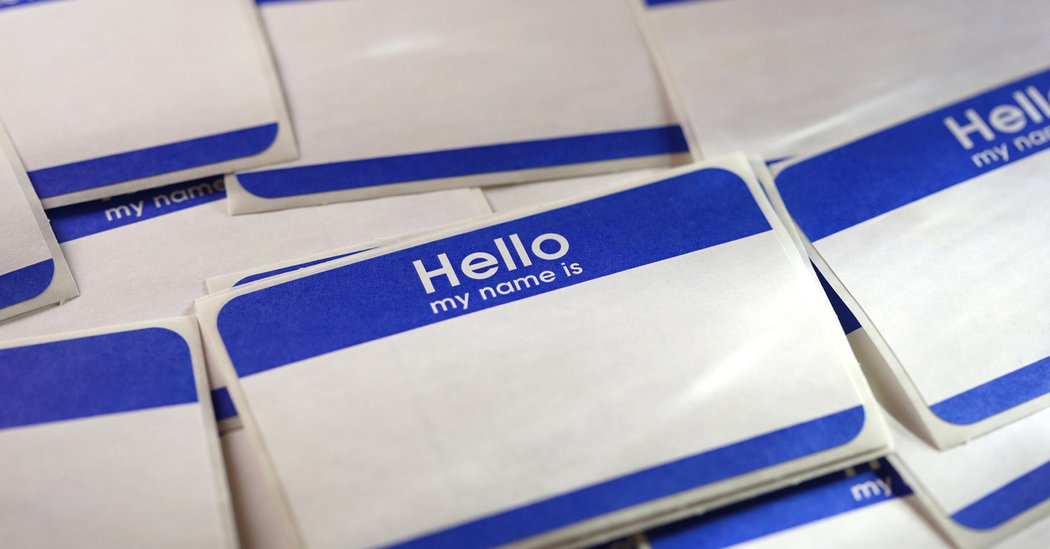
Despite the byline you see on this article, the name my parents gave me was Jo. Not Josephine, just Jo. Inspired by the main character in “Little Women,” they dreamed I’d grow to become every bit as norm-bashing as Louisa May Alcott’s fictional character, Jo March.
Although Jo, most recently brought to life by Saoirse Ronan in Greta Gerwig’s critically acclaimed film version of the classic novel, continues to be held up as an inspiration to young feminists, I grew up hating my name. I was relentlessly taunted and teased about it in elementary school.
After all, despite the feminized spelling, Jo was considered a boy’s name, at least among the under-8 set. I despised it so much that in third grade I announced to my parents: “From now on, my name is Allison.”
Allison was my middle name. My edict went into immediate effect for my teachers, too. In my recollections of that time, I was obstinate, unforgiving if anyone called me that other name.
Debbie Dryer Besser, among my dearest friends since we were 6 years old, recalls how I’d react if anyone made that fateful error when we sat in our elementary school lunchroom: “When you changed your name and people still called you Jo, you would put up your hand by your forehead, ‘lookout’ style, and say, ‘I don’t see a Jo for miles.’”
I never went back on my proclamation, making the name change legal only when I got married and was updating my last name anyway.
The choice of names parents make for their children has long been informed by Hollywood. Pamela Redmond, the chief executive and co-creator of Nameberry, the largest baby name website in the world, says “Shirley Temple drove her name to No. 2 in the late 1930s, Debbie Reynolds made Debbie a hit in the 1950s, and Kylo” — the leader of Star Wars’ First Order — “was one of the fastest-rising boy names of recent years.”
Now that my parents have both passed away, I’ve had faint pulls of longing for the name they chose for me. What does it mean when we untether ourselves from one of the first manifestations of our parents’ love? I sometimes wonder if I revert to Jo, would I, in some small yet significant way, mend the tether that bound us, the one that frayed when they died.
I’ve enjoyed a measure of relief and connection realizing that no matter what my first name, I’ve always been the Jo of my parents’ hopes and imaginations — for better and worse. Jo was short-tempered; I got kicked out of two summer camps for refusing to listen to my counselors. Jo was a tomboy; I played baseball on an all-boys Little League team. Fictional Jo was a writer, and that’s what I’ve become.
My birth name provides a story, but it’s not the most important story. My original moniker embodied my parents’ dreams for me, but their unwavering acceptance of my name change manifested their love. Ironically, eschewing my name may be the most Jo March decision I’ve ever made. Instead of offending my parents, my act of defiance might have made them look at each other with a self-satisfied smirk.
“What they wanted for you was way ahead of its time, including or maybe especially the rejection of conventional gender roles,” Ms. Redmond assured me. “They could have given you another androgynous name like Jamie or a literary name like Scarlett, but they gave you a name with a clear role model whose name was in fact chosen by Louisa May Alcott to telegraph qualities like independence and rejection of gender roles and societal norms.” (And we’re not even getting into the messages in the name of the March family’s handsome neighbor, Laurie.)
She added, “You were definitely an outlier for making such an early switch — and your parents were for allowing you to do it.”
When it came to naming our daughter, Lexi, my husband and I chose her first and middle name to celebrate my parents’ memories. Taking the “L” from my mother’s name “Lynn” was a sentimental nod and didn’t feel too onerous. My father’s name was Sidney. For a while we were thinking of naming her Sydney or Syd — like Jo, a historical feminization of a male name. But I couldn’t face uttering my father’s name every time I cheered for her at a soccer game. We decided that Lexi’s middle name would be Syd, a name that carries her grandfather into the present by whispering his enduring presence.
I’d like to think Lexi will keep her first and middle names as-is. I might feel a tug of regret if she didn’t. Or maybe I’d be proud of her Jo-like confidence and moxie, as I like to imagine my parents were of me.
The author Anita Diamant has written about the task of naming babies. She says choosing a name for your child is a second act of conception — that names begin the job of shaping human beings. Names carry forward tradition, give children an identity, and frame the way they are seen in the world. Was my parents’ choice of my name prophetic or did it in some small way nudge me toward my future? Maybe the answer is both. And neither.
My parents nurtured the Jo-like character traits they most wanted me to embody. That was their greatest gift to me. My birth name carries enormous power, still, even though I decline to use it and have never shared it publicly until now. I can draw comfort in knowing that the name is there, like an heirloom tucked away in an attic. Jo is my inheritance. It reminds me I’m still my parents’ daughter.
Allison Gilbert is the author of “Passed and Present: Keeping Memories of Loved Ones Alive.”

